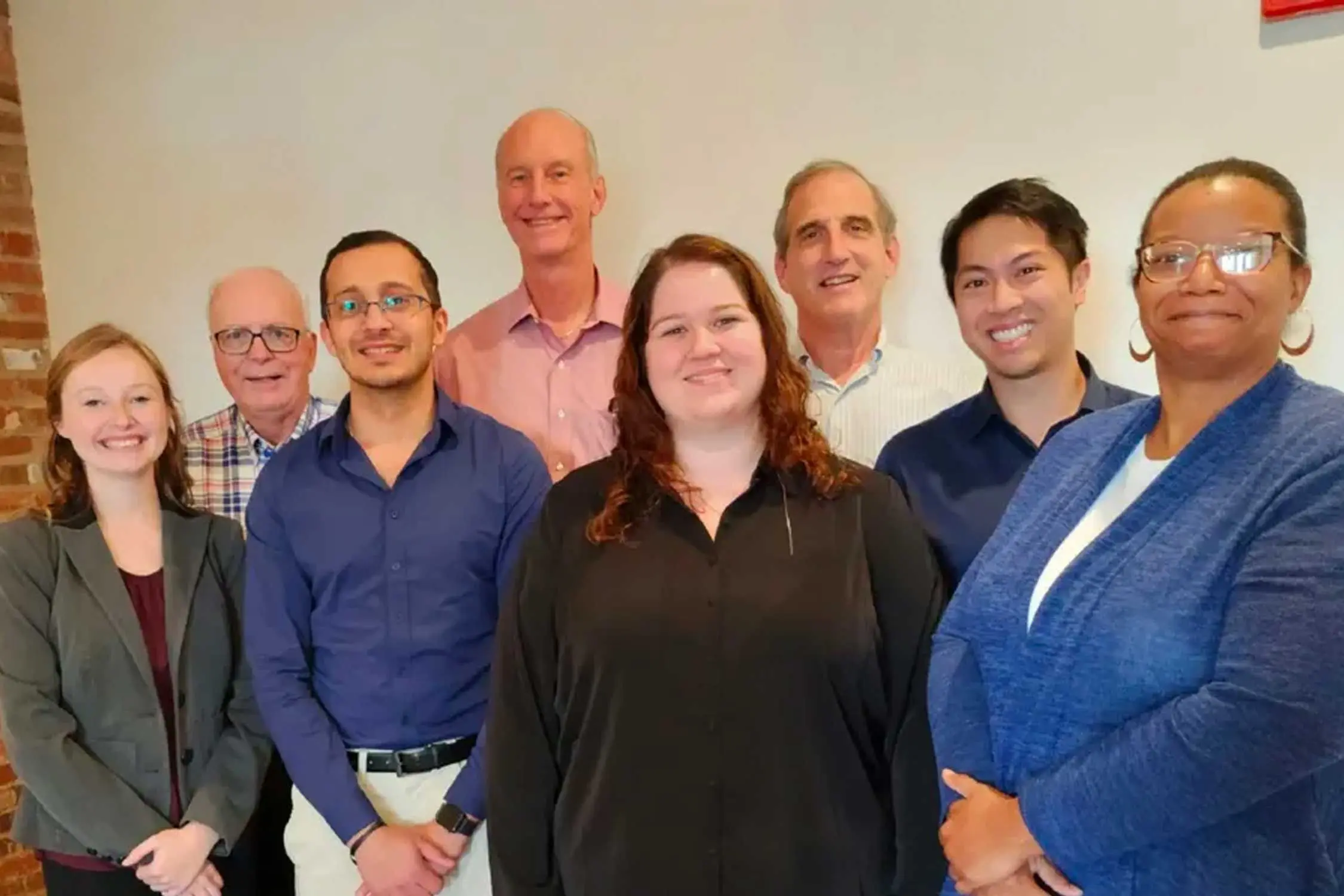Baltimore biotech company works to protect women's health
05/22/2023| Amanda Winters
Baltimore biotech company works to protect women's health
05/22/2023 | Amanda Winters
From pregnancy to postmenopause, Astek Diagnostics is working to protect women in every stage of life.
The medtech startup, which is located in the UM BioPark , is developing an innovative technology to detect bacterial infections in urine, also known as urinary tract infections (UTI). These infections are commonly found in pregnant and postmenopausal women, often due to changes in the immune system.
"Urinary tract infections (UTIs) are more frequently found in women. While UTIs are less frequent in men, they can still occur, although they are often attributed to different causes,” explained Mustafa Al-Adhami, PhD, CEO of Astek Diagnostics.
Being located in the UM BioPark allows Astek to work in the lab at the University of Maryland Medical Center, where it tests approximately 10 patients per week. With help from this testing, Astek recently completed the pilot study for its device – the Jiddu – which can identify a UTI bacterial infection and its antibiotic match in less than an hour.
The study analyzed 150 samples, revealing a 95 percent sensitivity for identifying urinary tract infections and 92 percent specificity for determining an antibiotic treatment.
Astek is aiming for a market launch within 18 months, targeting urology offices as the initial deployment. The company’s ultimate ambition is to see the Jiddu adopted in healthcare facilities nationwide, ensuring comprehensive UTI patient care across the board.
The Jiddu by Astek Diagnostics
"There is an urgent need for innovative technology that offers faster results for antibiotic sensitivity testing for UTI infections; this is essential for effective treatment and better patient outcomes,” said Dr. Mohan E. Tulapurkar , a University of Maryland research associate who collaborated with Astek on the study.
The normal process for treating a UTI has three steps. First, if a patient is feeling sick or presenting symptoms, they will provide a urine sample for testing and are then put on an antibiotic while awaiting results. Next, after a few days, the culture test will determine if bacteria is present in the sample. Lastly, if a bacteria is identified, it will be examined and a doctor will re-determine if the currently prescribed antibiotic is the correct choice for the infection. Many times, the results show that a different antibiotic would be a better match for the specific strain of bacteria found in the patient.
With more than 1 million people impacted by UTIs in the U.S. every year, these infections can grow painful and complicated without quick treatment.
“For us, patient care is first. We want to get people out of pain as fast as possible,” said Mustafa. “Our device goes from step one to step three without the delay—and speed makes a huge difference.”
Correctly identifying a UTI – and the specific medicine that will treat it – will help patients avoid switching from medication to medication. This is not only a critical step in eliminating patients’ pain, but also in protecting the body. Too many antibiotics can eradicate microbiome in the gut (or microorganisms that contribute to the body’s health), and potentially cause antibiotic resistance.
“Pregnant women cannot take many antibiotics, and our test will help confirm which medications are necessary,” said Mustafa. “A mother’s microbiome is the best thing for a baby [to be exposed to]. You don’t want to kill the microbiome with too many antibiotics.”
CEO Mustafa Al-Adhami receives a 40 Under 40 award from the Baltimore Business Journal
Upon launching in 2020, the company’s first investment was through the Maryland Technology Development Corporation (TEDCO), followed by the Maryland Industrial Partnerships (MIPS) program. Since then, the company has utilized various state resources, including participating in industry-specific delegations and exploring financial assistance programs.
“BIITC was a game changer for us, especially for out-of-state investors,” said Mustafa, referring to the state’s Biotechnology Investment Incentive Tax Credit. The program provides investors with an income tax credit equal to 33 percent of an eligible investment in a qualified Maryland biotech company.
Astek was recently awarded a grant from the National Science Foundation to further its blood panel used to identify infections and prevent complications, including sepsis. Sepsis , which is known as the body's harmful response to an infection, can lead to organ failure, shock, and death. This extreme bodily reaction impacts more than 1.7 million Americans every year, leading to hundreds of thousands of deaths.
“We are driven by the belief that our work can help prevent devastating outcomes, like sepsis, ultimately saving countless lives and sparing families from unimaginable grief,” said Mustafa. "We are deeply committed to revolutionizing infection detection and treatment, and we believe our one-hour antibiotic sensitivity test is a vital step in that direction.”
Keep up with the latest.
Sign up for e-mail notifications.
